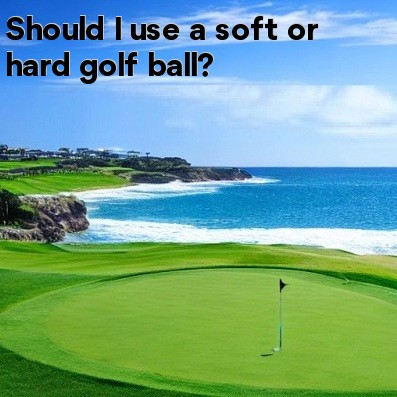
Should I use a soft or hard golf ball?
When it comes to choosing a golf ball, many players find themselves debating between using a soft or hard ball. Both types have their advantages and disadvantages, and the right choice ultimately depends on your playing style and preferences. In this article, we will explore the characteristics and performance of soft and hard golf balls to help you make an informed decision.
The Soft Ball
A soft golf ball is designed with a low compression core, which provides a softer feel upon impact. This type of ball is typically preferred by players with slower swing speeds as it allows for greater compression, resulting in more distance off the tee. The softer feel also provides better control around the greens, making it easier to generate spin for improved shot-stopping ability.
Furthermore, soft balls tend to have a higher trajectory due to their low compression. This can be advantageous for players who struggle with getting sufficient height on their shots or battling strong headwinds. The added spin and control make soft balls a popular choice among professional players and those seeking maximum control over their shots.
The Hard Ball
On the other hand, a hard golf ball features a high compression core, resulting in a firmer feel when struck. This type of ball is commonly chosen by golfers with faster swing speeds as it generates greater ball speed off the clubface, resulting in long-distance shots. The firmness of the ball also aids in reducing spin, which can be beneficial in certain situations, such as fighting against a strong crosswind.
Moreover, hard balls tend to offer a lower trajectory due to their higher compression. This can be advantageous for players who already hit the ball high and are looking to keep their shots under control, particularly in windy conditions. The lower spin and increased overall distance make hard balls popular among players who prioritize raw distance off the tee.
Choosing the Right Ball for You
When deciding between a soft and hard golf ball, it is important to consider your playing style, swing speed, and overall preferences.
- If you have a slower swing speed and are looking for more control and spin around the greens, a soft ball may be the right choice.
- On the other hand, if you have a faster swing speed and prioritize distance off the tee, a hard ball may be more suitable.
- It is also worth considering the course conditions you often play on. If you frequently encounter windy conditions, a hard ball's lower trajectory and reduced spin may be advantageous.
Ultimately, the best way to determine which ball suits you best is to try different options and assess their performance on the course. By experimenting with different brands and models, you can identify the ball that feels the most comfortable and helps you achieve your desired results.
In conclusion, the choice between a soft or hard golf ball depends on your individual playing style, swing speed, and personal preferences. Whether you value control and spin or prioritize distance and trajectory, there is a ball out there that will enhance your game and help you achieve your goals.





